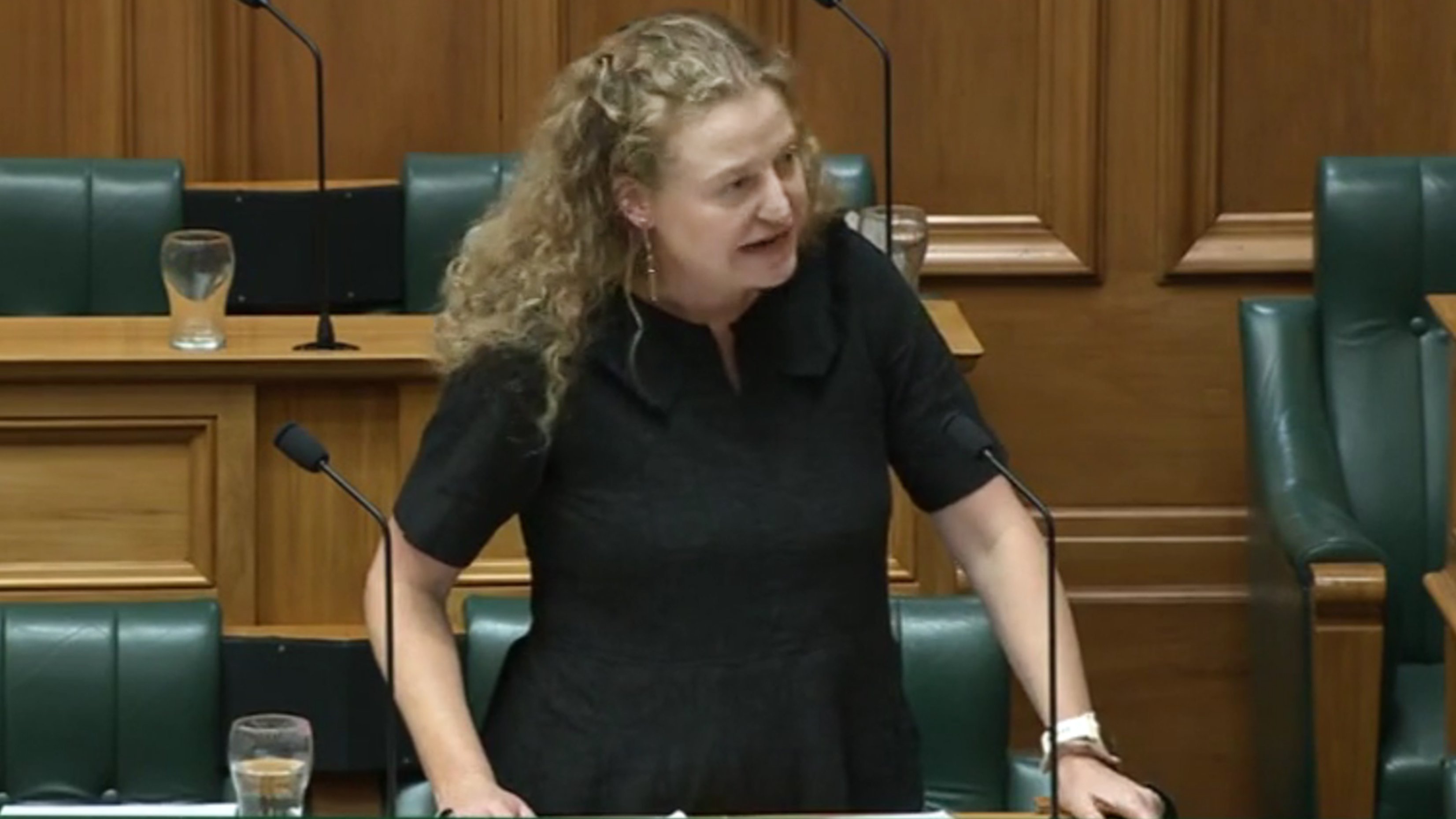

Parliament had set aside time for a special debate on the Budget Policy Statement, and as the freshly-appointed head of the finance and expenditure select committee, Ms Brooking was to lead off the debate.
However, the highest profile moment yet in her young parliamentary career had to wait, as the House broke from scheduled programming for an urgent debate on the resignation of Stuart Nash as minister of police just minutes earlier.
That, as Ms Brooking eventually set out, was not the only thing which had stolen the thunder from the Budget Policy Statement — Ms Brooking and her committee staged its hearings on the statement on February 13, a day before a national state of emergency was declared, and the fearful impact of Cyclone Gabrielle necessitated a major reordering of budgetary priorities.
Despite catastrophe-driven rewrites, the statement — which is a legal requirement under the Public Finance Act 1989 — needs to set out the policy goals which are intended to be met by the Budget, the policy areas being focused on, and the wellbeing objectives which will be met.
Right now, those can pretty much be summed up as cleaning up and rebuilding.
"There’s a section on climate change and there is some discussion about how the Government is very concerned about the impacts of recent extreme weather events," Ms Brooking said.
"Noting, of course, that this was written last year and we thought last year was bad."
The statement then addresses the Climate Emergency Response Fund, which will be extended this Budget to include climate change adaptation.
"That was a point that the committee focused on in the hearing with the minister," Mr Brooking said, demonstrating finance and expenditure’s prescient powers.
The minister — finance minister Grant Robertson — is well aware of the need for adaptation, being a one-time resident on the flat of South Dunedin.
The Budget, on May 18, will be his sixth. They have evolved over that time, from being a statement of the government’s fiscal plan, to the "wellbeing budgets" that they are today. So too have policy statements changed, Mr Robertson said.
"When I came into office, I found them to be very dry documents that didn’t really tell us a lot about what the government intended to do with its Budget and, in particular, what that meant. Because it’s all very well to say the numbers and the amounts of money that we’re putting in, but a wellbeing budget requires the government of the day to be able to express that and what it will mean for people’s lives."
Taieri Labour MP Ingrid Leary, speaking as the deputy chairwoman of the select committee, returned to the weather event theme.
"This Budget Policy Statement that was produced in December 2022 foreshadowed some of the big events that we have seen this year, without the minister actually being able to crystal ball gaze," she said.
"It’s very fortunate that he had put economic security at the heart of his statement ... it means that we’re well positioned to be able to build back better and smarter going forward."
Last but not least, and giving the debate a very Southern flavour, was Dunedin Labour MP David Clark, a one-time associate finance spokesman but now, thanks to his imminent retirement, a government backbencher on the select committee.
Dr Clark picked up on many aspects of the policy statement, but also showed just how hands-on Mr Robertson is.
"I believe the cover photo is one that the Minister of Finance himself took. I hope that’s true and I’m not misleading the Parliament on that — he has many skills."
Those skills included, Dr Clark said, drafting financial documents which reflect ordinary New Zealanders.
"It used to be that Budget Policy Statements were just full of numbers. This has the numbers in it, but it explains what they mean for New Zealanders, where the country will head, why we’re prioritising the things we’re prioritising and what we expect the outcomes to be, and then a government can be held to account to that and our population can know that it is represented in a way that represents and mirrors the priorities of that society."
Who are you?
National Dunedin list MP Michael Woodhouse sent the House down an Alice in Wonderland-like rabbit hole on Tuesday by asking Speaker Adrian Rurawhe to consider when a minister is a minister, or not.
His colleague Shane Reti had been quizzing Health Minister Ayesha Verrall about emergency department waiting times, and many of his inquiries covered a time when the recently appointed Dr Verrall was not the minister.
Dr Verrall had, probably not in malice, excused herself from answering due to that fact, but, as Mr Woodhouse — the shadow leader of the House — pointed out, when answering a question, she is answering as the minister and not as Dr Verrall, and it matters not a jot when the minister became the minister — she was the minister.
"Thank you to the Hon Michael Woodhouse for raising the issue," a weary-sounding Mr Rurawhe said.
"The minister could answer now, and maybe the minister knows or does not know — I don’t know."
Neither, probably, did anyone after that exercise in semantics.
How the mighty have fallen
One of the side effects of dropping back to the backbench, as Dr Clark has done, is that you can be called upon to speak on anything and everything. Hence, Dr Clark delighted the House on Wednesday night with his contribution to the second reading of the Hawke’s Bay Agricultural and Pastoral Society Empowering Bill.
"Madam Speaker, if you’ll forgive me," he asked Waitaki MP Jacqui Dean, who was in the big chair, "I don’t like to bring the Speaker into the debate, but I’m sure that you’ve been to the Palmerston and Waihemo A&P Show and enjoyed it as much as I have over the years."
Dr Clark went on to bring more excitement, but also disappointment, to all fair fans listening.
"I’m told, this year carnival rides are promised to return to the Hawke’s Bay A&P Show, and hot dogs on sticks of course will be there too. So I do encourage New Zealanders to get along to these shows and to have the experience, the quality experience, that comes with them."
At which point Act New Zealand’s Mark Cameron interjected to advise "The candyfloss is no more."
"The candyfloss, sadly, is hard to find, as our colleague across the House comments," Dr Clark continued.
"But many of those things which we think of as quintessentially Kiwi will be there, and I do commend the show to the House."
Perhaps glad to hear of the demise of the candyfloss was Invercargill National MP Penny Simmonds, who weighed in later in the debate with her A&P Show recollections.
"My abiding memories are about eating far too much candyfloss, then going for tea at my grandmother’s.
"For some inexplicable reason, she always gave us lettuce salad and pressed tongue, and I can assure you that candyfloss, pressed tongue and chair-plane rides are not a good combination."












